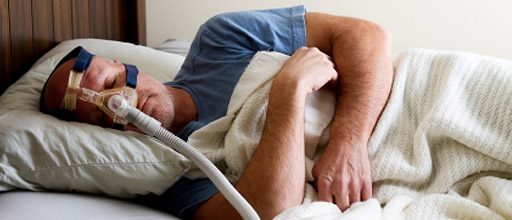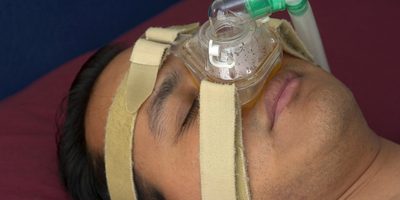
A quiet night’s sleep may keep heart attacks at bay
Treat the snoring and you may be less likely to have a heart attack or stroke. This is the premise of an international study being coordinated by Australian researchers at the George Institute for Global Health.
“We know that up to half of people who have suffered a heart attack or stroke have a condition called obstructive sleep apnoea (OSA). This is mostly characterised by loud snoring and a disturbed night’s sleep,” says Dr Jeremy Goldin, principal study investigator at The Royal Melbourne Hospital.
OSA occurs when the soft tissues at the back of the throat relax during sleep causing the airway to narrow, which restricts airflow to the lungs. This reduces blood oxygen levels and sets off an alarm in the brain.
“This series of events can happen hundreds of times a night preventing deep sleep and can cause the sufferer to feel sleepy during the day,” says Goldin. “But many people don’t feel sleepy or have any other symptoms and are therefore unaware they have OSA,” he adds.
Approximately one in ten middle-aged men suffer from OSA; middle-aged women are two and a half times less likely to have the condition. Continuous positive airway pressure (CPAP) machines are used to treat OSA. The mask-like devices are placed over the nose and mouth and ensure a person receives constant airway pressure and therefore a good night’s sleep.
“We want to determine whether treating the OSA with CPAP can reduce the chances of someone having another heart attack or stroke,” said Emma Heeley, Senior Research Fellow at The George Institute for Global Health in Sydney, which is responsible for managing and analysing the international study data.
“OSA is one of the five controllable risk factors for cardiovascular diseases. CPAP treatment could be another tool that helps reduce the risk of a serious cardiac event,” explains Heeley.
Notes
- There are 11 study sites across five Australian states. Other participating countries are New Zealand, the United Kingdom, China, India and Brazil
- The Royal Melbourne Hospital, The Caulfield Clinical Trials Centre, The Eastern Clinical Research Unit and the Monash Medical Centre are all currently recruiting participants for the Sleep Apnoea Cardiovascular Endpoints (SAVE) international study
- Eligible participants must be aged between 45 and 75, have existing cardiovascular health problems (eg have previously had a heart attack or stroke, proven angina, bypass surgery or coronary artery stents or a transient ischemic attack) and must not have previously used CPAP
- The Adelaide Institute for Sleep Health, Adelaide, South Australia is the international coordinating centre responsible for overall coordination of the study
- The George Institute for Global Health is responsible for management of the trial data and for quality control procedures


